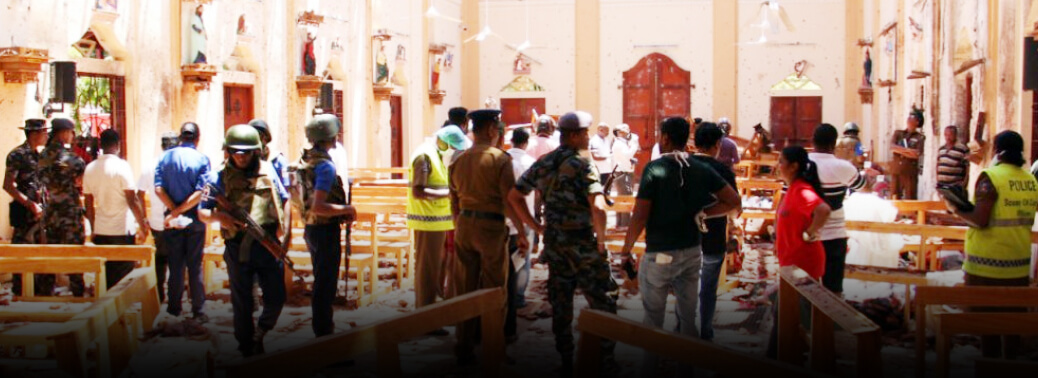PREVENTING FURTHER ATTACKS IN SRILANKA
23, Apr 2019

Prelims level : International
Mains level : GS-II Governance, Constitution, Polity, Social Justice and IR
Why in News:
- Preventing further attacks and keeping the peace are vital in Sri Lanka.
Background:
- The serial blasts on Easter Sunday rank as the worst bloodbath Sri Lanka has seen since the end of the civil war in 2009. It is a monumental tragedy for a country that is trying to live down the strife that lasted more than a quarter century.
Concerns:
- The island nation in the Indian ocean welcomes about 2.5 million visitors a year from around the world. Data from the World Travel and Tourism Council show that the industry is one of the biggest contributors to the country’s economy, supporting about 1 million jobs. It is also the third largest source of foreign currencies, according to research firm Capital Economics.
- Tourism’s importance has grown rapidly in the last 10 years, after the Sri Lankan government defeated the rebel Tamil Tigers organization to end nearly three decades of civil war. Tourism has been a big success story for Sri Lanka over the last decade
- No group has yet claimed responsibility for the attacks and the police investigation is ongoing. But international tourists are now likely to stay away.
- The Sri Lankan government has declared a state of emergency starting midnight Monday. The US State Department has urged travellers to exercise increased cautions, warning that “terrorist groups continue plotting possible attacks.”
- The violence is likely to hit the tourism industry hard, at least in the short term
- Airline passengers cancel bookings
- One business feeling the impact immediately is Sri Lankan Airlines, the national carrier. CEO Vipula Gunatilleka told CNN Business that hundreds of passengers have canceled bookings since Sunday’s attacks. The airline is allowing passengers to delay or change flights without paying a fee.
- Gunatilleka, whose airline carries about one-third of people flying into Sri Lanka, said it was too early to speculate on how long the damage to tourism will last.
- India is one of the biggest sources of foreign visitors. One tour group said it had not yet seen any cancellations.
Investors could lose confidence:
- The US dollars, Chinese yuan and other currencies tourists spend in Sri Lanka are vital to the economy.
- Sri Lanka needs a constant flow of currency to keep up payments on its foreign debt. The debt owed by the Sri Lankan government amounts to about 80% of the country’s annual economic output, statistics show, and it is rising.
- Much of this debt is owed to countries in currencies other than the Sri Lankan rupee, analysts point out. In 2018, Moody’s and Fitch both downgraded the Sri Lankan government’s credit rating, citing questions over its ability to repay its debts.
- Like other emerging markets, Sri Lanka has also seen foreign investors yank funds out of the country amid sustained US dollar strength.
- If investors lose confidence in Sri Lanka’s capability to repay its debts, that could prompt the nation’s currency to weaken further. “This will further weigh on the economy,”






